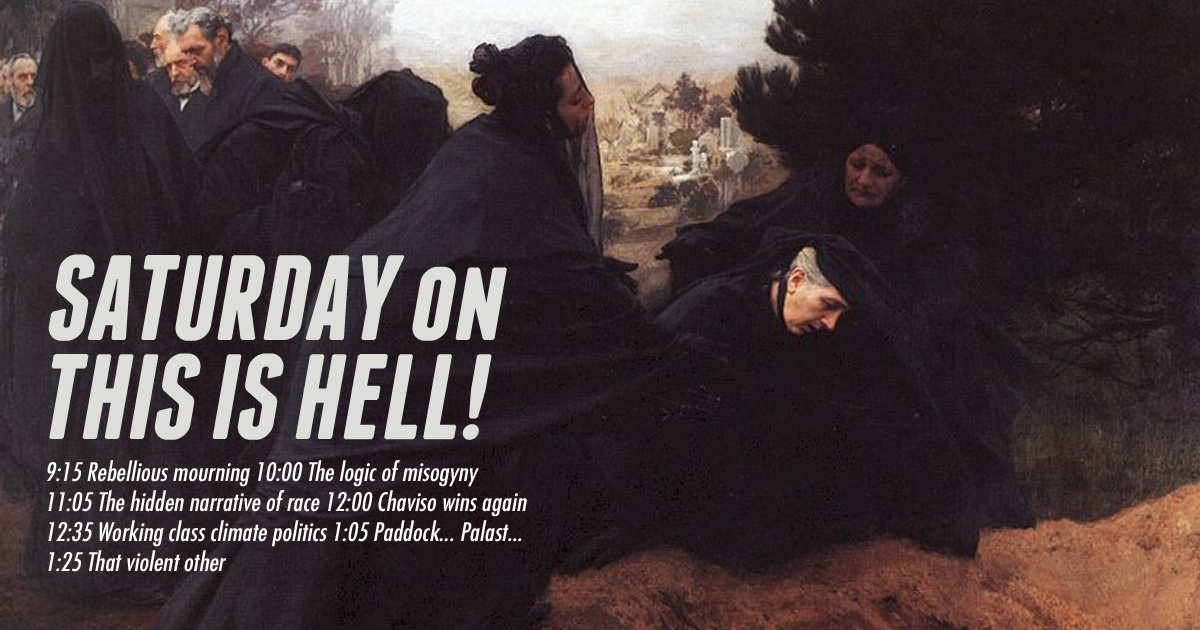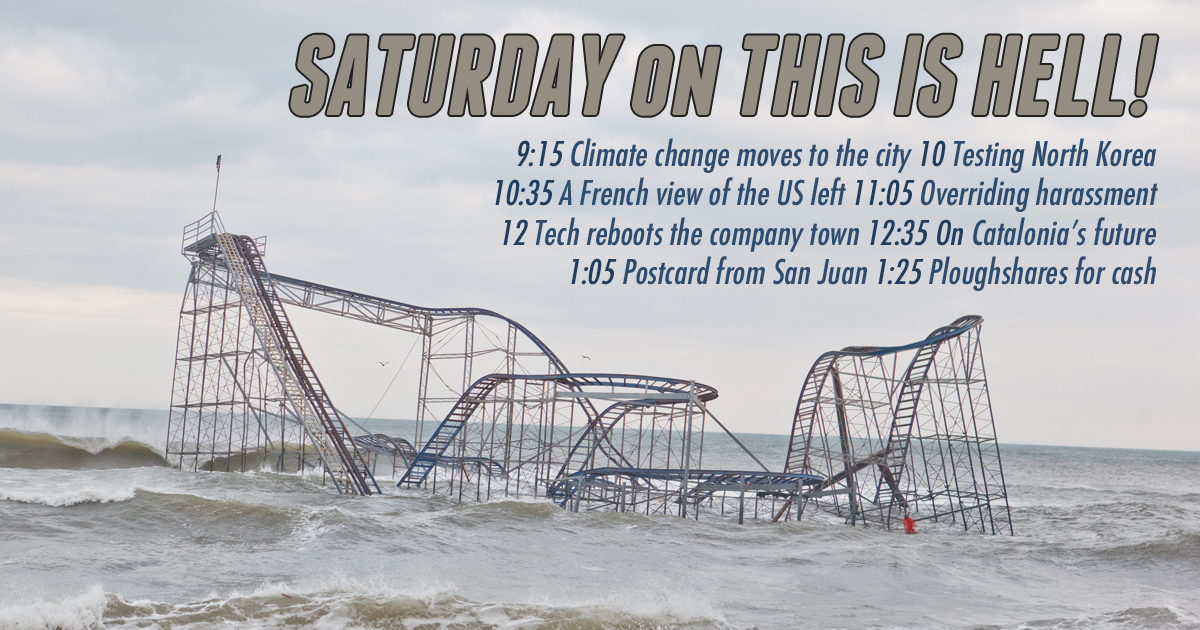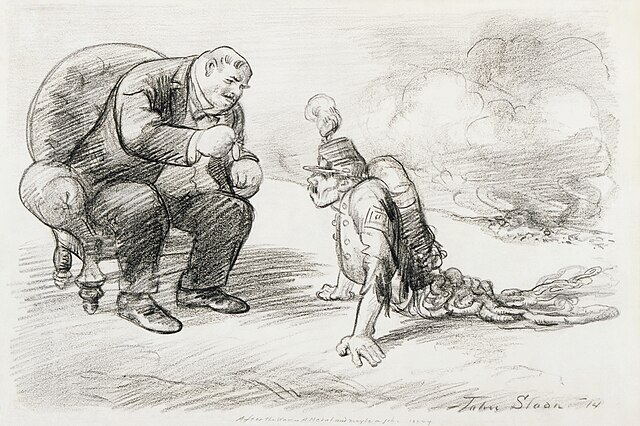
Historian Alfred McCoy joins us to discuss his new book, Cold War on Five Continents: A Global History of Empire and Espionage from Haymarket Books. "The Moment of Truth" with Jeff Dorchen follows the interview.
Help keep This Is Hell! completely listener supported and access bonus episodes by subscribing to our Patreon.
Please rate and review This Is Hell! wherever you get your podcasts. It really helps the show ascend the algorithm to reach new listeners.
The Assassination That Paved the Way for Trump’s Venezuela Attack / Séamus Malekafzali
Welcome to the Moment of Truth: the thirst that is the drink.
I thought of a funny character name: Dag Nabakov. It's a cross between the old coot's interjection "dag nabbit," Swedish diplomat Dag Hammarskjöld, and the author of Lolita and Pale Fire, Vlad Nabakov. Or NaBAKov, as people I disagree with about pronunciations mispronounce it. Dag Nabakov is an old southern novelist who moved to Russia and wrote about an old foreigner who falls in love with an underage Russian because she represents everything he idealizes about the brutish freedom of his adopted country. When Shelly Winters kills herself, he plays a hilarious cat-and-mouse game with Peter Sellers until he's finally brought to tears or justice or something. And the Swedish part of the author is, he loves lingonberries, and dies in a plane crash.
A friend of mine was talking about Donald Dump's recent reaction to the recent incident of terrorist automobile violence in New York. My friend's an adoptive New Yorker, and he said, and I paraphrase freely, "New York doesn't need his anti-immigrant BS. He's always on about immigrants, hating on immigrants, but this is New York, which is immigrant central. It's a city of immigrants, like no other city. I'd just like to see some New Yorkers, grieving about this incident, but then Dump spouting his anti-immigrant BS, and these New Yorkers just beating the crap out of him. That's not how you sympathize with New Yorkers about something like this. It's not an invasion of aliens. It's them. It's one of them like that Las Vegas shooter was one of the white people. New Yorkers know what their city means, and it doesn't mean xenophobic racist real estate pricks who don't pay their contractors."
It got me thinking about how people become racist. They say no one's born racist. Then they did an experiment with rats that showed rats were racist, so now they're not so sure. People might be born racist. Mammals have cultures, though, even rats. Maybe there's some learned racism among rats. And human culture is ridiculously overwhelming, and many of its effects are creepy and insidious.
I knew a white guy who worked in the projects in a social-worker-ish capacity, and he was beaten up quite severely by some black teens, and it seemed after that he decided, "What am I not being racist for? What's the point?" And he became a big ol' macho racist.
How he came by his feelings made sense to me,... read more

Listen live from 9AM - 1:40PM Central on WNUR 89.3FM / stream at www.thisishell.com / subscribe to the podcast
9:15 - Writer Cindy Milstein finds rebellion and solidarity in the face of death.
Cindy is the editor of Rebellious Mourning: The Collective Work of Grief from AK Press.
10:00 - Philosopher Kate Manne examines the brutal logic of misogyny.
Kate is author of Down Girl: The Logic of Misogyny from Oxford University Press.
11:05 - Activist Carl Anthony charts a new path towards environmental and racial justice.
Carl is author of The Earth, the City, and the Hidden Narrative of Race from New Village Press.
12:00 - Journalist Lucas Koerner explains why Chavismo won, again, in Venezuela's elections.
Lucas wrote the piece Why Chavismo Won for Venezuelanalysis.
12:35 - Jacobin's Alyssa Battistoni looks at climate change's impact on working class movements.
Alyssa wrote the article Living, Not Just Surviving for Jacobin.
1:00 - Journalist Greg Palast remembers high school shop class with Vegas shooter Steven Paddock.
Greg wrote the piece I went to school with the Vegas shooter at his website.
1:25 - In a Moment of Truth, Jeff Dorchen regards the violent Other.
Jeffy's always othering that guy.

Listen live from 9AM - 1:40PM Central on WNUR 89.3FM / stream at www.thisishell.com / subscribe to the podcast
9:15 - Writer George Monbiot explores the possible new worlds to emerge from the wreckage of this one.
George is author of Out of the Wreckage: A New Politics for an Age of Crisis from Verso.
10:00 - Kali Akuno and Ajamu Nangwaya discuss building alternative economic and social models at Cooperation Jackson.
Kali and Ajamu are edited and contributed to to the new collection Jackson Rising: The Struggle for Economic Democracy and Self-Determination in Jackson, Mississippi from Daraja Press.
11:05 - Sociologist Alex Vitale looks to the end of policing, and the start of democratic solutions to social problems.
Alex is author of The End of Policing from Verso.
12:00 - Journalist Martha Pskowski reports on bureaucratic disasters before and after Mexico City's earthquake.
Martha wrote the Guardian article 6,000 complaints ... then the quake: the scandal behind Mexico City's 225 dead.
12:35 - The Oakland Institute's Anuradha Mittal documents the struggle for land and livelihood in occupied Palestine.
The Oakland Institute released a series of nine reports on everyday life for Palestinians, titled Palestine: For Land and Life.
1:05 - Our Man in San Juan, Dave Buchen checks in from tomorrow's dystopia, today - post-Irma Puerto Rico.
Dave is in town to work on Theatre Oobleck's Apocalypse Cabaret: A Benefit for Puerto Rican Artists in November.
1:25 - In a Moment of Truth, Jeff Dorchen's appearance discrimination gets ugly.
Not a good look for Jeffy.

Listen live from 9AM - 10:15AM Central on WNUR 89.3FM / stream at www.thisishell.com / subscribe to the podcast
9:10 - Historian Bradley Simpson examines US complicity in the murder of 500,000 Indonesian leftists.
Bradley wrote the brief U.S. Embassy Tracked Indonesia Mass Murder 1965 for the National Security Archive.
9:45 - Writer Max Haiven finds financialization at the heart of capitalism's authoritarian logic.
Max wrote the article Financialization, precarity and reactionary authoritarianism for ROAR Magazine.

Listen live from 9AM - 10AM Central on WNUR 89.3FM / stream at www.thisishell.com / subscribe to the podcast
9:15 - Author Ashley Dawson explores the future of cities, and the life in them, as climate change comes home.
Ashley is author of Extreme Cities: The Peril and Promise of Urban Life in the Age of Climate Change from Verso.
10:00 - Seoul correspondent Marc Flury takes minutes at the DPRK's Central Committee plenary meeting.
You might remember Marc from dropping the hottest video game of 2016, the rhythm violence nightmare THUMPER.
10:35 - Charlie Hebdo's Jacob Hamburger reports back on the strange, foreign world of the American Left.
Jacob conducted the interviews for Charlie Hebdo's 4-part, English language series Feeling the Burn: The Left Under Trump.
11:05 - Game developer Zoe Quinn explains how to fight online harassement, from Gamer Gate and beyond.
Zoe is author of Crash Override: How Gamergate (Nearly) Destroyed My Life, and How We Can Win the Fight Against Online Hate from PublicAffairs. Zoe is on a book tour right now, she'll be at Chicago Ideas Week next Friday.
12:00 - Journalist Julianne Tveten tours the company towns of Silicon Valley's vampire over/land-lords.
Julianne wrote the recent articles Zucktown, USA for The Baffler and How the "Fake News" Scare is Marginalizing the Left for In These Times.
12:35 - Writer Becquer Seguin examines the present state, and future stakes of Catalan independence.
Becquer wrote the articles Have Spain and Catalonia Reached a Point of No Return? and The Spanish Government Just Energized Catalonia’s Independence Movement for The Nation.
1:05 - Our Man in San Juan, Dave Buchen (phones willing) checks in from sunny, apocalyptic Puerto Rico.
Dave reported back two weeks ago that he was fine, and screwed.
1:25 - In a Moment of Truth, Jeff Dorchen beats his money into ploughshares.



